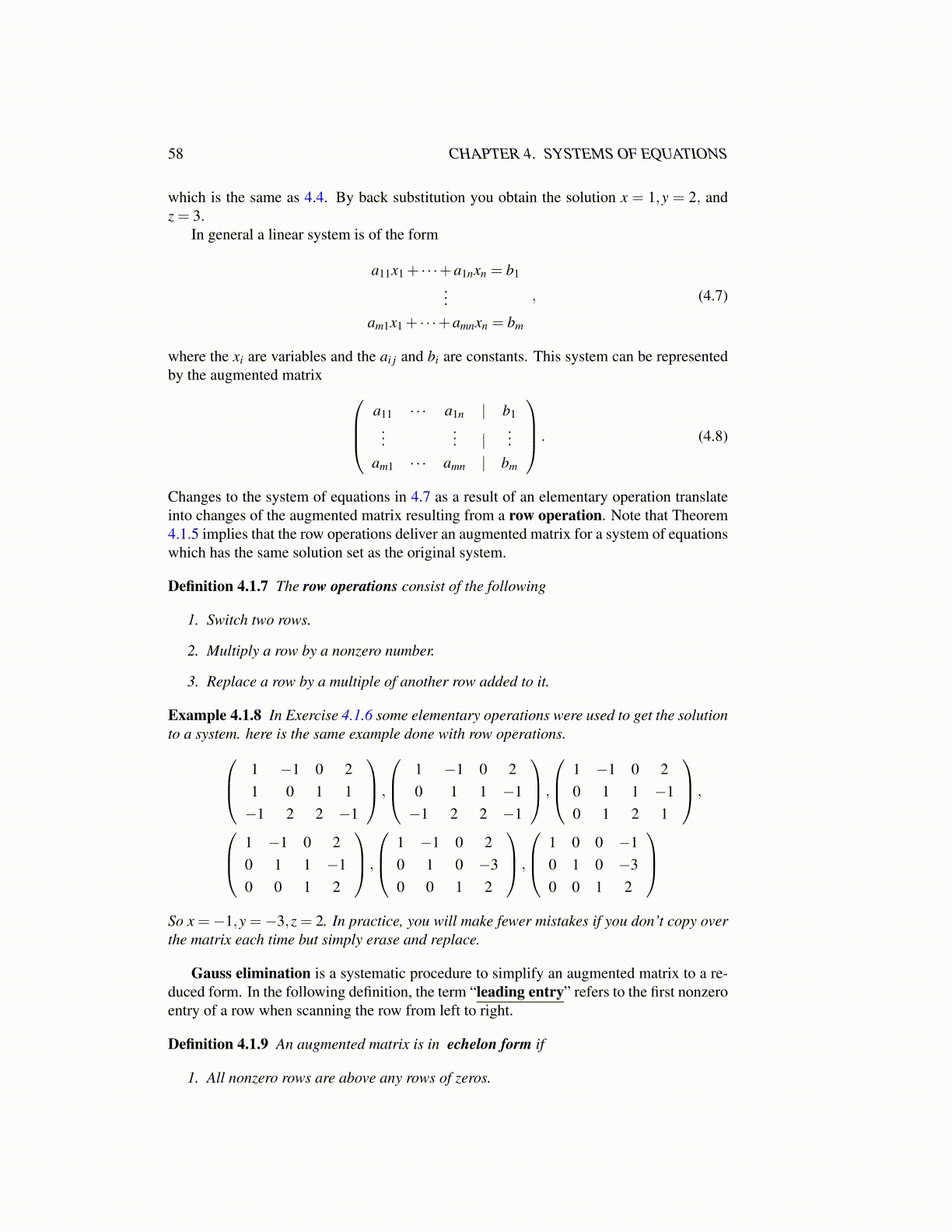
58 CHAPTER 4. SYSTEMS OF EQUATIONS
which is the same as 4.4. By back substitution you obtain the solution x = 1,y = 2, andz = 3.
In general a linear system is of the form
a11x1 + · · ·+a1nxn = b1...
am1x1 + · · ·+amnxn = bm
, (4.7)
where the xi are variables and the ai j and bi are constants. This system can be representedby the augmented matrix
a11 · · · a1n | b1...
... |...
am1 · · · amn | bm
. (4.8)
Changes to the system of equations in 4.7 as a result of an elementary operation translateinto changes of the augmented matrix resulting from a row operation. Note that Theorem4.1.5 implies that the row operations deliver an augmented matrix for a system of equationswhich has the same solution set as the original system.
Definition 4.1.7 The row operations consist of the following
1. Switch two rows.
2. Multiply a row by a nonzero number.
3. Replace a row by a multiple of another row added to it.
Example 4.1.8 In Exercise 4.1.6 some elementary operations were used to get the solutionto a system. here is the same example done with row operations. 1 −1 0 2
1 0 1 1−1 2 2 −1
,
1 −1 0 20 1 1 −1−1 2 2 −1
,
1 −1 0 20 1 1 −10 1 2 1
,
1 −1 0 20 1 1 −10 0 1 2
,
1 −1 0 20 1 0 −30 0 1 2
,
1 0 0 −10 1 0 −30 0 1 2
So x =−1,y =−3,z = 2. In practice, you will make fewer mistakes if you don’t copy overthe matrix each time but simply erase and replace.
Gauss elimination is a systematic procedure to simplify an augmented matrix to a re-duced form. In the following definition, the term “leading entry” refers to the first nonzeroentry of a row when scanning the row from left to right.
Definition 4.1.9 An augmented matrix is in echelon form if
1. All nonzero rows are above any rows of zeros.